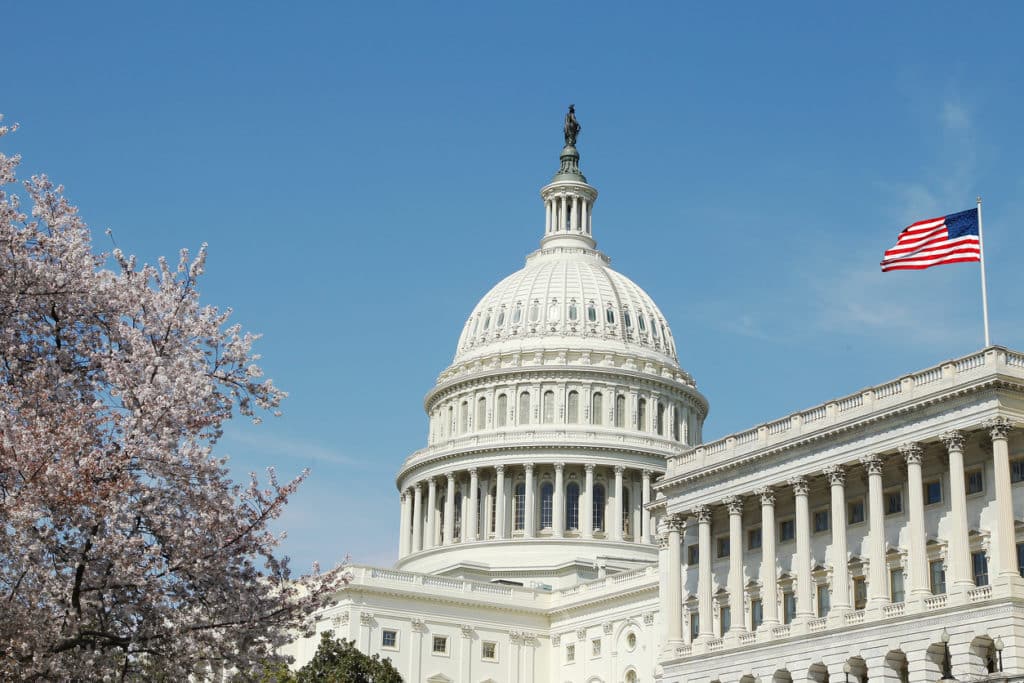

Senator Cynthia Lummis (R-WY) said the bipartisan bill she introduced this year would have prevented the collapse of crypto firm FTX, which has filed for Chapter 11 bankruptcy protection.
Senator Lummis was interviewed at the Financial Times’ Crypto and Digital Assets Summit in London on 28 November. She described the crypto world as the “Wild West” in terms of having either inadequate, or no, regulation.
In June this year U.S. Senator Lummis, member of the Senate Banking Committee, and Senator Kirsten Gillibrand (D-NY), member of the Senate Agriculture Committee, introduced the bipartisan Responsible Financial Innovation Act legislation to create a complete regulatory framework for digital assets.
As a former state treasurer, I am excited by the possibilities of incorporating digital assets into the American financial system. The legislation that @SenGillibrand and I are proposing will do just that.
— Senator Cynthia Lummis (@SenLummis) June 6, 2022
Senator Gillibrand said at the time: “Digital assets, blockchain technology and cryptocurrencies have experienced tremendous growth in the past few years and offer substantial potential benefits if harnessed correctly. It is critical that the United States play a leading role in developing policy to regulate new financial products, while also encouraging innovation and protecting consumers.
Senator Lummis said at the conference: “The Lummis-Gillibrand bill is a fairly comprehensive effort to integrate digital asset regulation with typical securities and commodities regulations in the United States. There is an emphasis on allowing for, and accommodating, the important innovations that are occurring in this space while at the same time protecting consumer assets and using our abilities on disclosure and consumer protection to the advantage of people who are engaging in this very special asset class.”
She continued that if FTX had been complying with the Lummis-Gillibrand bill, the firm would not have collapsed because the regulation does not allow firms to bundle custody and other components of trading.
“Consumers’ assets would have to be segregated and we would not allow all the functions that FTX had to be bundled into one trading entity,” Lummis added.
For example, FTX created a token and used its hedge fund entity, Alameda, to artificially beef up the value of the token which the senator said would be prohibited under the bill.
Lummis said the US Securities and Exchange had made efforts to meet with some of the senior management from FTX as it had a US entity, but FTX was based in the Bahamas without a board of directors and without a CFO.
“There was at least one of their 135 business entities that was based in the US, but it’s difficult for the SEC to regulate outside of that US-based company,” she said. “FTX successfully identified a jurisdiction where they felt they could operate with a different level of scrutiny than the SEC.”
There have been debates in the US over whether crypto should be treated as securities, which are regulated by the SEC, or commodities, which are regulated by the Commodity Futures Trading Commission.
Senator Cynthia Lummis outlines the scope of her crypto regulation bill at #FTCrypto@SenLummis pic.twitter.com/hMWZU4Vvqr
— Financial Times Live (@ftlive) November 28, 2022
Lummis believes that FTX itself, the company, would fall under the jurisdiction of the SEC but underlying assets would fall under the jurisdiction of different entities. For example, she described bitcoin as clearly a commodity, which would fall under the CFTC. She believes the FTT token looked like a stablecoin, which would involve other regulatory agencies such as the Office of the Comptroller of the Currency, while stablecoins issued by banks should be insured by the FDIC.
She said: “Senator Toomey has a bill that addresses stablecoins that are issued by non-banks. In both cases we would require those stablecoins to be 100% backed by hard assets such as US dollars or a basket of currencies. Those are things, that had they been in place for FTX, would have set off alarm bells and created enforcement actions and reviews by federal regulatory agencies.”
FTX was heavily involved in drafting the bill that is before the Senate Agriculture Committee, which has jurisdiction over the CFTC, and Lummis said it needs to be rewritten in a way that is more effective and neutral as to business models, but still very focused on consumer protection.
The Senate is currently in a lame duck session and Lummis is hopeful that the Lummis-Gillibrand bill will be high on the legislative agenda when a new Congress reconvenes in January 2023 as FTX has highlighted the urgency of regulation.
She said the bill is in one piece and other legislators and regulatory agencies will be able to see how these assets interrelate.
“If you see it all in one piece, you can see how the puzzle fits,” she added. “We may need to break it apart and send standalone parts to different communities so stablecoins can go to banking, the commodities piece can go to agriculture, the tax components can stay on the finance committee and so on.”



